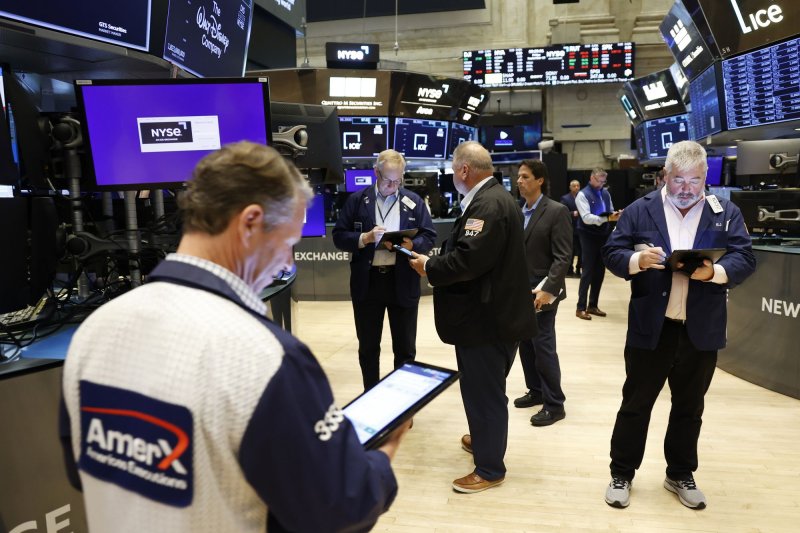Consumer price index increase slows to 8.2%, still among highest since 1980s

Traders work on the floor of the New York Stock Exchange on Wall Street on Sept. 16. The consumer price index for September topped what Dow Jones economists had predicted on Thursday.
Photo by John Angelillo/UPI | License Photo
Oct. 13 (UPI) -- The consumer price index increased by 0.4% in September and 8.2% from this time in 2021 while the yearly core rate increased by 6.6% to its highest point since 1982, according to the latest statistics released Thursday.
The year-to-year index, the so-called headline inflation indication, slowed from the 9% increase in June but remained the highest since the early 1980s, the Bureau of Labor Statistics said. It also marked the second monthly increase after falling flat in July.
The "core" CPI, which excludes the volatile food and energy sectors, increased 0.6% in September, above the 0.4% predicted by Dow Jones economists, according to CNBC.
Energy continued to be the main driver of inflation, while dropping 2.1% in September, it remained at 19.8% over last year's index
Oct. 13 (UPI) -- The consumer price index increased by 0.4% in September and 8.2% from this time in 2021 while the yearly core rate increased by 6.6% to its highest point since 1982, according to the latest statistics released Thursday.
The year-to-year index, the so-called headline inflation indication, slowed from the 9% increase in June but remained the highest since the early 1980s, the Bureau of Labor Statistics said. It also marked the second monthly increase after falling flat in July.
The "core" CPI, which excludes the volatile food and energy sectors, increased 0.6% in September, above the 0.4% predicted by Dow Jones economists, according to CNBC.
Energy continued to be the main driver of inflation, while dropping 2.1% in September, it remained at 19.8% over last year's index
Food prices increased 0.8% for the second straight month while showing an 11.2% increase over 2021 prices. Food had shown increases of more than 1% in March, May, June and July.
That inflation growth above the expected pace sparked fears that the Federal Reserve will continue to increase rates. In September, the Fed bumped up interest rates by 0.75 percentage points to the range of 3% to 3.25% after it remained near zero as recently as March.
"The Federal Reserve has made it very clear they're committed to price stability, they're committed to reducing the inflationary pressures," said Michelle Meyer, chief U.S. economist at the Mastercard Economics Institute, according to CNBC.
"The more inflation comes in above expectations, the more they're going to have to prove that commitment, which means higher interest rates and cooling in the underlying economy."
No comments:
Post a Comment